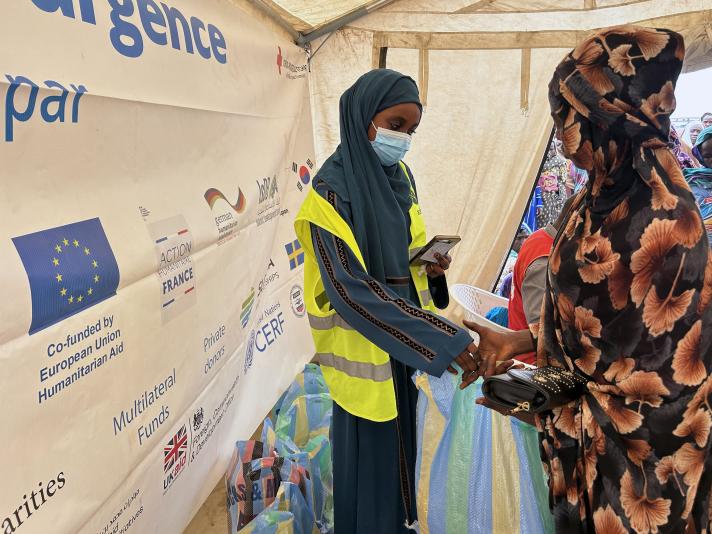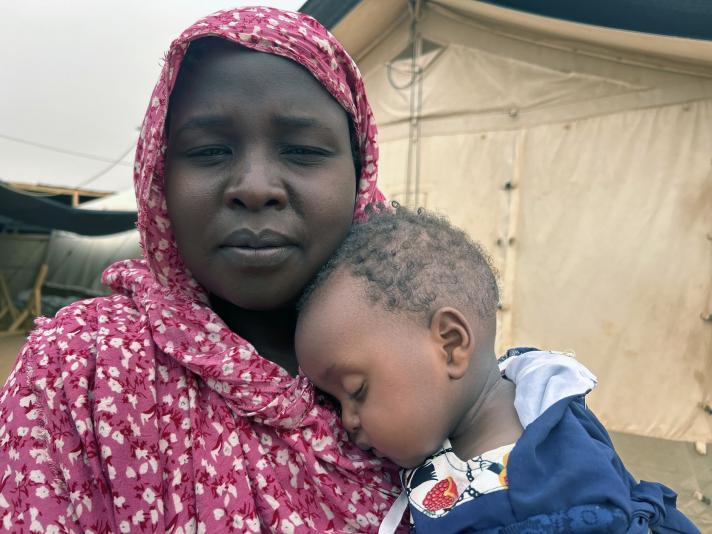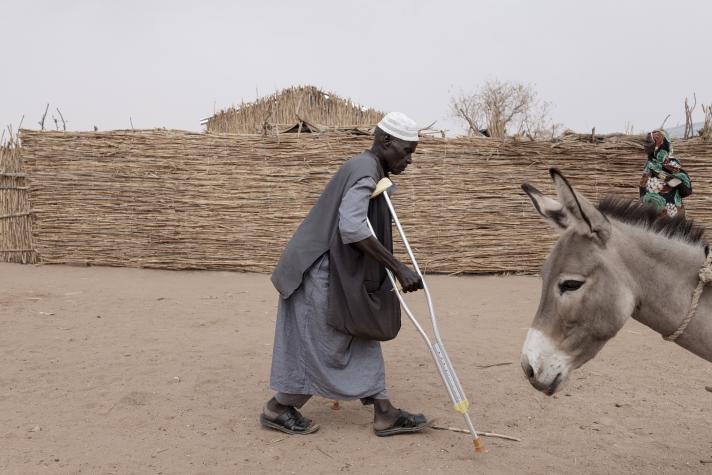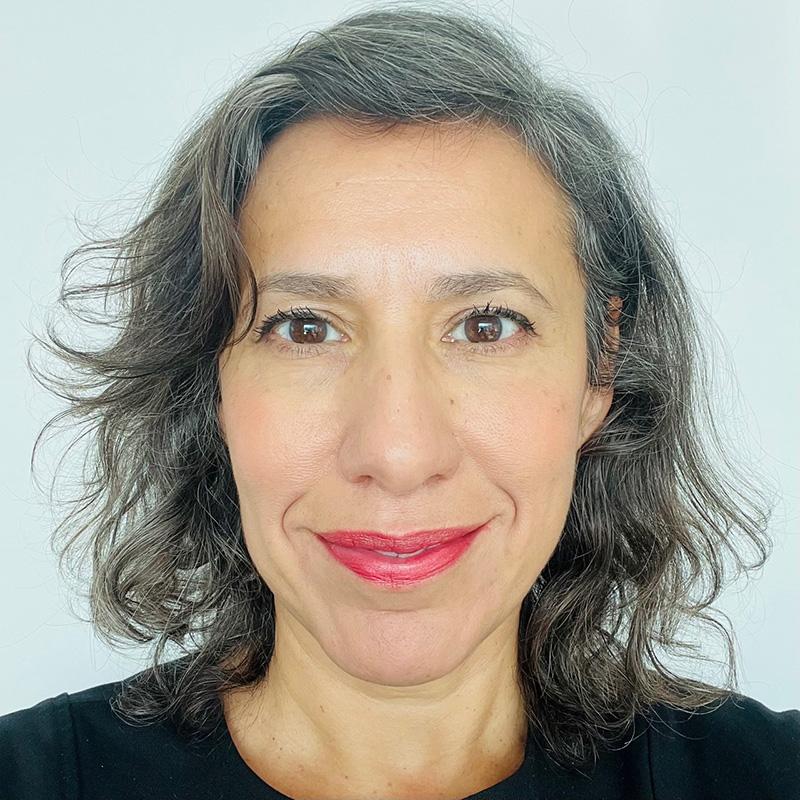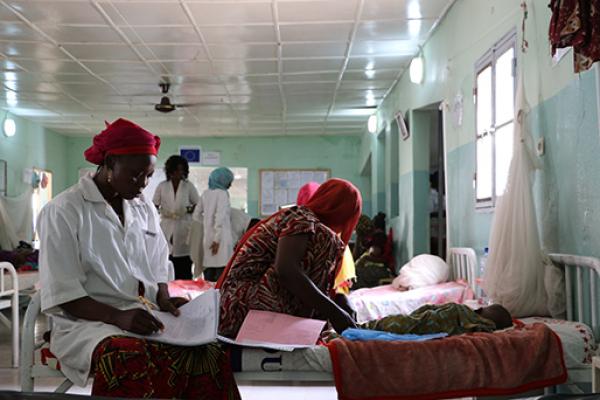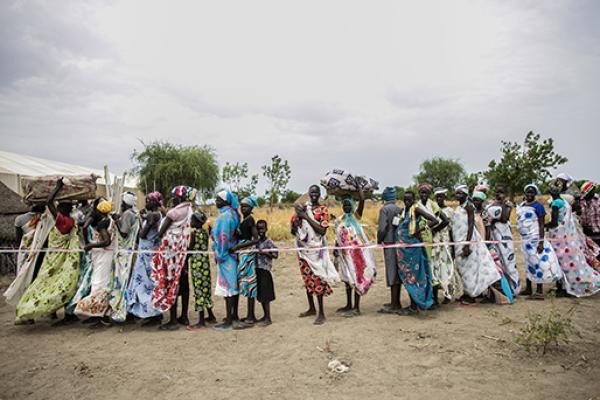When Mahamat reached the unfinished bridge between Sudan and Chad, he cried out in disbelief "What, was I not in Chad yet?! ". Anxious and exhausted, refugees on the lookout for relatives or waiting to be registered, asked him why he had been walking leisurely in an area where snipers target tall black men like himself.
Mahamat’s journey is nothing short of a miracle. He survived the June 2023 massacre in Ardamata, western Darfur, relying on his cleverness and luck.
He was ambushed, shot at, and held at gunpoint with nothing but words to convince Arab militiamen not to kill him.
A licensed social worker in Darfur’s El Geneina town, he is now a jobless and aid dependent refugee in Chad. But Mahamat counts his blessings and realises his was a very lucky escape.
Talking to refugees who fled the civil war in Sudan’s Darfur region you wonder who of them has not been injured, abused or extorted; who was not starving, did not witness rape or killing. Their haunting tales of atrocities are too numerous and graphic for print.
Yet, as humanitarians we must speak the truth, and send a plea to the world to make the violence and killing stop. Darfur is on a brink of a second genocide in 20 years’ time, human rights experts warn, this time all but neglected.
9 million Sudanese – equivalent to the entire Austrian population – are on the move to escape the fighting. This is the largest displacement crisis in the world today.
Sudan’s neighbour Chad has already welcomed more than 775,000 new refugees and returning Chadians since civil war broke out in Sudan in April 2023, pushing the Sudanese refugee population over the 1 million mark.
Aged 7, Saad and her family fled the genocide in Darfur in 2003. 20 years later, they had to run for their lives once again. She traded a camp for internally displaced people in Sudan for a refugee camp in Chad.
While her husband was shot in the stomach, they survived the Ardamata massacre, relentless attacks, and shelling. Finally, making a run for the border, they were driven into the merciless arms of one militia group after the other. Her testimony serves as a stark reminder of their resilience and the horrors they endured in their quest for safety.
“The militias stole all our things, burned down our houses,” Saad says. “They asked the men to lie face down and killed them in front of us.”
Chased all the way to Chad, she was beaten, and her 80-year-old father shot in the leg. “They asked him ‘why are you coming here with your daughters, where are your sons?’ When he replied he didn’t have any except the little one they shot him, reassuring each other ‘He’s an old man, he’ll be dead soon.’”
In Chad, her agonising dad was treated in hospital, and they were eventually moved away from the unsafe border to a new camp in Aboutenge by EU partner, the UN Refugee Agency (UNHCR).
“When we sit together to speak about what happened, my parents say they have never seen a war like this before,” Saad says.
“They want to go back home, because life was easier. They could get food, water and small things like soap. Here, it is too difficult.”
The EU has allocated €58 million since the beginning of 2024 to help people in need in Chad, including the refugees. More than 20 EU humanitarian partners are helping to meet the refugees’ most urgent needs, including physical rehabilitation for the injured and psychosocial support for the traumatised. But this being the largest refugee influx in the history of Chad, addressing even the most essential needs requires vast resources.
"Normally, an emergency has a beginning and an end," says Pierre-Yves Scotto, Head of EU Humanitarian Aid operations in Chad.
"But this emergency seems to have no end in sight, it’s only gaining in volume and complexity. It is unprecedented, nothing Chad has ever seen in the past."
Indeed, the arrival of 600,000 new refugees and 170,000 returning Chadians has pushed the country’s hosting capacity to the brink. Its welcoming refugee policy is at risk of crumbling.
The rainy season has started, and new camps – each with a capacity of 50,000 people and at a cost of at least $20 million - need to be built.
“It is urgent that the 200,000 refugees at the informal border settlement get relocated to avoid epidemics and security incidents. We’re in a race against time,” Pierre-Yves Scotto warns.


